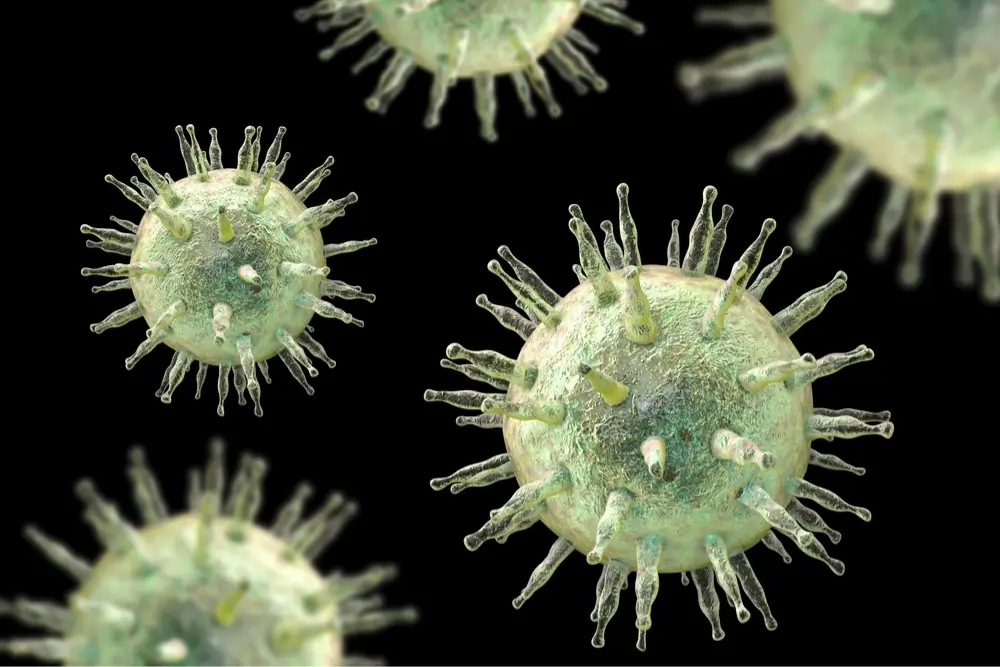Glandular Fever- the key facts about the “kissing disease”
What is Glandular Fever?
Glandular Fever (also known as Infectious Mononucleosis) is a viral illness caused by the Epstein-Barr Virus (or EBV for short). EBV belongs to the Herpes family. Other Herpes viruses cause familiar infections such as cold sores, genital herpes and chicken pox. Glandular Fever is common in young adults and teenagers. Most people will catch it at some point in life, though around 50% will show no symptoms while they have it.
How do you get Glandular Fever?
It is spread through saliva, or droplets that are coughed or sneezed into the air. It is sometimes called the “kissing disease” as it is easily spread this way.
How long does it take symptoms of Glandular Fever to develop?
If you are exposed to EBV it can take from 30 to 50 days for symptoms of Glandular Fever to show. It is also common for people to catch EBV but never show any symptoms of Glandular Fever at all- around 50% of the time the immune system clears it without a person feeling unwell.
What are the symptoms of Glandular Fever?
After catching the Epstein Barr Virus, there may be no symptoms for about a month. Then tiredness and low energy levels may develop. Some people do not get any other symptoms of Glandular Fever, but a sore throat, fever, rash, nausea and swollen neck glands may occur. Sometimes glands elsewhere in the body will also be enlarged ( for example in the armpits or groin). Less commonly, the liver and spleen may swell, causing tummy pain.
How long do symptoms of Glandular Fever last?
This varies form person to person. Many people will just feel tired for a week or two, others may experience ongoing fatigue for a few months.
Is Glandular Fever dangerous?
No, it is usually not serious. As mentioned above, many people who catch the Epstein Barr Virus get no symptoms at all.
Less common complications include:
- Jaundice (yellow discolouration of the skin and eyes)
- Rupture of the spleen
- Hepatitis (inflammation of the liver)
- Viral meningitis (inflammation of the lining of the brain) or encephalitis (inflammation of the brain itself)
- Neurological conditions
- Inflammation of the heart (myocarditis and pericarditis)
- In the longer term, certain cancers can be triggered, such as lymphoma
For how long is Glandular fever contagious?
- Glandular fever can be contagious for several months after the symptoms have settled. That is why there is no specific recommendation regarding school exclusion.
- It is also very common for people to pick it up from “silent carriers”, therefore isolation of symptomatic cases is not very helpful.
- Once you’ve caught the Epstein Barr Virus (EBV) it never leaves your body- as with many viruses (e.g cold sores, chicken pox etc) it lies dormant in your system . A small number of people may continue to excrete or shed the virus for life, and can pass it on to others.
How is Glandular Fever diagnosed?
It is usually diagnosed on the basis of symptoms, and confirmed by a blood test. Sometimes it does not show up on the first blood test, but a follow-up blood test a few weeks later may be positive for the virus.
What is the treatment for Glandular Fever?
- As with many viral illnesses, there is no specific treatment and no need for isolation. Rest, fluids and simple pain relief are advised.
- To minimise spread, good hand hygiene is recommended and an infected person should avoid sharing cups, cutlery etc with other people.
- There is no vaccine for EBV.
If you have further questions about Glandular Fever, speak to your doctor.
How to Get a Sick Cert Online Fast
How to Get a Sick Cert Online Fast Woke up with a sore throat or a pounding headache? We’ve all been there—too crook to drag yourself to the GP, [...]
What is a hysterectomy and when is it needed?
What is a hysterectomy and when is it needed? A hysterectomy is a surgical procedure to remove a woman's uterus (womb), usually performed by a gynaecologist. It is commonly [...]
Eyelid cosmetic surgery
Is Eyelid Cosmetic Surgery Right for You? Are your eyelids feeling heavy? Do they affect your vision, making everything blurry or giving you a sense of constant fatigue? Do [...]






